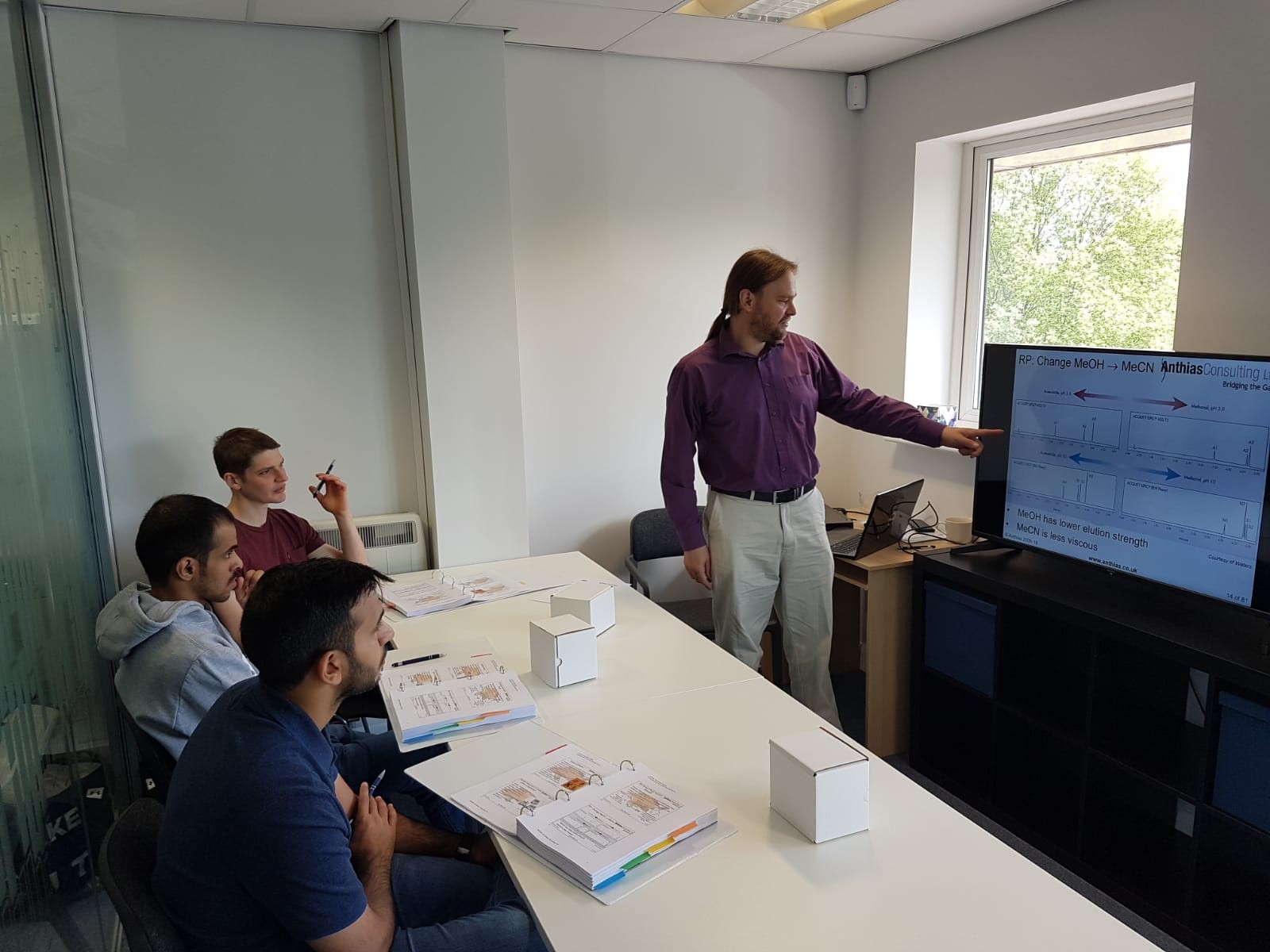Practical Essentials of LC and LC-MS columns, detectors and data analysis
- Duration: 1 day for face-to-face
- Experience level: Intermediate
- Delivery methods: Face-to-face | Offsite training & consultancy | On-Demand | Online | Onsite training & consultancy | Tailored training |
- Type of course: Universal
- Applicable to manufacturer(s): Agilent | Bruker | CTC | PerkinElmer | Sciex | Scion | Shimadzu | Thermo | Waters |
- CPD Approved: Not yet approved
- Scheduled course price: £385.00 + TAX per delegate
- Course discounts: RSC CAMS HEaTED members receive a discount on this course

What will you learn on this course?
Day 2 / Modules 4, 5 and 6 of the Complete HPLC & LC-MS and the Practical Essentials of HPLC & LC-MS courses.
First, the types of LC system classifications are explained. Following this, the analytical columns used in liquid chromatography are covered in detail (stationary phase, particle size etc.) including the various separation mechanisms at play, normal phase, reverse phase and HILIC.
The course covers a brief introduction into the types of detectors used in liquid chromatography both universal and selective, their relative sensitivities and linear dynamic ranges are discussed. Ultra Violet/ Visible absorbance (UV/Vis), Fluorescence (FL), Refractive Index (RI) and Photo Diode Array absorbance (PDA or DAD) detectors are covered in detail, followed by mass spectrometry with atmosphic pressure inlets. Electrospray, APCI and APPI ionisation techniques are discussed, mass analysers and tandem mass spectrometry are also covered.
The final part of this course looks at data analysis and the reasons for performing the analysis, including measures to ensure repeatability and reproducibility. This will cover qualitative analysis, identification, quantitation and semi-quantitation.
The course finishes with a questions and answers session to consolidate your knowledge and leave you with a firm understanding of the topics covered.
Combine other days or modules.Learning outcomes
- You will learn how to select an appropriate LC column (dimensions and stationary phase) for your application.
- You will learn the operation and selection of an appropriate LC detector.
Who is this course for?
If you have limited LC experience, wish to learn about these particular areas or would like to brush-up on your knowledge then this is the course for you.

